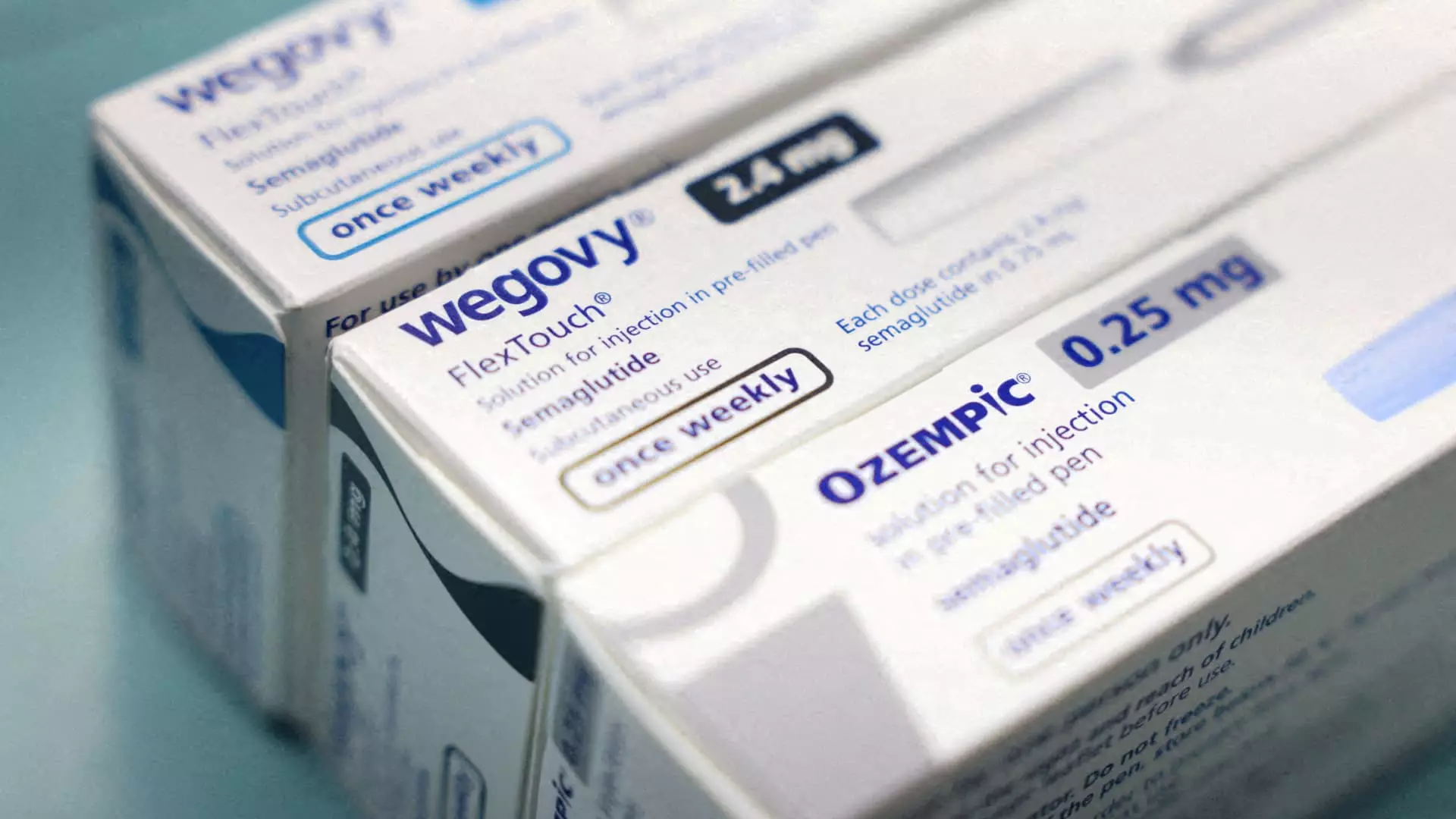After over two years of patient shortages and rampant demand, the U.S. Food and Drug Administration (FDA) has recently announced that the supply issues surrounding Novo Nordisk’s popular weight-loss injection, Wegovy, and diabetes medication, Ozempic, have been resolved. This conclusion is significant for numerous stakeholders, from pharmaceutical companies to patients and compounding pharmacies. The FDA’s decision marks a pivotal moment in managing pharmaceutical supply chains and mitigating the risks posed by unlicensed compounded alternatives.
Following the FDA’s announcement, Novo Nordisk’s stock saw a noteworthy uptick of approximately 5%. This increase likely reflects investor confidence that the company can regain its market dominance following a period of turbulence prompted by overwhelming demand for semaglutide, the active ingredient in both drugs, which has faced a shortage since early 2022. Conversely, shares of Hims & Hers, a telehealth company providing compounded variants of these medications, plummeted by over 25%. This stark contrast illustrates the volatile nature of the pharmaceutical industry, where regulatory changes can lead to drastic shifts in market valuation.
The prolonged shortage highlights the broader implications for pharmaceutical manufacturing. Novo Nordisk and its competitor, Eli Lilly, have both ramped up production capabilities to cater to soaring demand. The FDA’s assurance that Novo Nordisk can meet the current market requirements reinforces the company’s commitment to addressing the need for effective weight-loss and diabetes treatments, anticipated to dominate a burgeoning market projected to exceed $150 billion annually by 2030.
Novo Nordisk’s executive vice president, Dave Moore, emphasized the importance of relying on FDA-approved medications. His statement reflects a conscious effort to inspire consumer trust while warning against the dangers posed by unapproved compounded versions of these injectable drugs. Such alternatives may present significant health risks, as patients could unwittingly expose themselves to counterfeit or substandard drugs. The FDA’s movement to eliminate compounded versions signifies a protective stance aimed at safeguarding public health amid swirling misinformation.
However, the path forward won’t be entirely devoid of challenges. While the FDA confirmed that overall supply has improved, it also cautioned that patients may still experience “intermittent and limited localized supply disruptions.” This indicates that, although the overarching problem appears resolved, the distribution network may still face hurdles during the transition back to approved supply chains.
A direct consequence of the FDA’s decision is the impending closure of an avenue that many patients have come to depend on: compounded versions of semaglutide. Compounding pharmacies that had previously indulged in creating and supplying unapproved alternatives will now face stringent regulations, requiring them to cease operations involving semaglutide within 60 to 90 days depending on the facility type. This regulatory shift could lead to a reduction in the number of treatment options available for patients, particularly those seeking affordable drugs that aren’t covered by Medicare and other insurance plans.
With FDA oversight tightening, the competition in the diabetes and weight loss pharmacotherapy landscape is poised for a transformative phase. As Novo Nordisk navigates through the complexities of reinstating its market position, it may focus on reinforcing relationships with healthcare providers and patients to restore and maintain trust.
Moreover, with competitors like Eli Lilly already advancing in this field, it’s an opportune moment for both companies to capitalize on an evolving market characterized by heightened public interest in effective weight-loss solutions. The strategic positioning and innovation around these approved treatments will not only dictate market success but also define the future healthcare landscape for millions of patients seeking effective management for diabetes and weight-related issues.
While the restoration of the supply chain for Wegovy and Ozempic represents a victory for Novo Nordisk and the FDA, it also marks a new chapter in the ongoing dialogue about patient safety, regulatory frameworks, and market dynamics within the pharmaceutical industry. The coming months will undoubtedly be crucial in shaping the dynamics of both consumer trust and company viability in this rapidly evolving sector.

